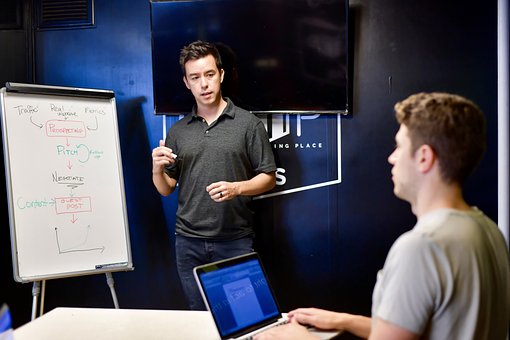If you want to become a more disciplined person, the secret lies in Charles Duhigg's book "The Power of Habit," notably in chapter five on page 142. You may think the answer is to form habits, but that's not it; it's something else, and it's hiding in plain sight in one of the studies he discusses in this book.
A psychologist conducted a study with patients undergoing knee replacement surgery at a hospital in Scotland. If you're familiar with this type of surgery, you'll know that movement and physical rehabilitation are critical practically immediately after the surgery if the patient is to fully recover their mobility. But there's a catch: movement after a knee replacement is agonizingly painful. As a result, many people who undergo this sort of surgery never fully recover. So the psychologist collected around 60 of these patients and had them write down very comprehensive plans for their recovery on paper. And there's something remarkable.
Patients who had a strategy for what they were going to accomplish were significantly more likely to follow through and push through the discomfort when it arrived. A man, for example, committed to walking to the bus stop every day to meet his wife as she returned home from work. And therein is the key to self-discipline. It's concealed in plain sight in that example, as well as in the encounters we have with individuals on a daily basis.
The key is accountability, often known as duty, which refers to the commitments we have to one another. When your boss tells you to arrive at work at a certain time, you arrive at that time because your boss is counting on you. When your younger brother requests that you take him up from school, you oblige because he is reliant on you. But what about our personal objectives? What about that instrument you've been meaning to learn or that workout program you've been attempting to maintain? Nobody else is dependent on us for these personal objectives.
The five levels of self-control, each level in this model represents a different sort of accountability that can be used to supplement and strengthen your self-discipline. This model's four levels are concerned with our interpersonal relationships. They are also the most potent levels.
Accountability To Yourself
Introducing An Accountability Into The Mix
Coach Or A Teacher
Accountability Partners And Coaches
Leadership
ACCOUNTABILITY TO YOURSELF
This is the weakest, but it is not inherently weak; in fact, the research in this book demonstrates that it can be highly strong. Now, my favorite example is the man who opted to meet his wife at the bus stop because he included another person in the equation. But everyone else who succeeded in this research didn't have anyone else relying on them, and they succeeded because they kept themselves accountable. They created plans and then followed through on them. Every time we make a plan, sit down and write down a task, add something to our calendar, or decide to accomplish something, we are essentially holding our future selves accountable.
And the study here illustrates how to be more successful with that.
Make It Tangible
write down what you're going to do
Be Specific About It
Write down exactly what you were going to do and what conditions may cause you to fail.
The final section is also mentioned in Seth Godin's great book, "The Dip." When he discusses how marathoners frequently decide what will drive them to quit before starting the race. In this manner, they are pre-committing. To the conditions that would force them to drop out, and when the discomfort strikes later in the marathon, perhaps 18 or 19 kilometers in, they'll know, I committed to other conditions that would cause me to stop, and this is not one of them, so I'm going to press through.
INTRODUCING AN ACCOUNTABILITY PARTNER INTO THE MIX
An accountability partner is someone who likes or cares about you, is concerned about your objectives and progress, and will go out of their way to ensure that you are doing what you said you would do, who truly follows up on you. This is a more rare individual than you might assume. And many people fall into a familiar trap. Where they go around telling everyone of their friends and family about a goal they have, with the expectation that these people will hold them accountable.
However, due to a phenomenon known as social reality, they end up sabotaging themselves. This is when you realize you've made some progress toward your objective as a result of the compliments you receive from others after telling them about it. You have the impression that something has occurred, but in reality, no progress has been accomplished.
Furthermore, research has indicated that persons who talk about their aspirations tend to practice less and stop more frequently. So, in general, you shouldn't go about talking about your aspirations if you want to avoid these social realities. The caveat here is that if you can find someone who will act as an accountability partner, telling them about your objective and having them keep you accountable can be really powerful.
COACH OR A TEACHER
Coaches and teachers are essentially professional accountability partners that provide some additional benefits. A superb coach is someone who is an expert in the subject you want to learn. They can either do it now because they are at the level you are attempting to reach, or they were at that level at some point in their lives and have the experience to show you how to get there. They do, however, have teaching experience. And this is a distinct skill set in and of itself.
Some people are experts, yet they suffer from what's known as the expert paradox, in which they are so adept at what they do that it's like breathing to them. It comes naturally, and it is absolutely unconscious. As a result, they don't know how to break things down into small beginner bits that someone your level needs to grasp and advance. So a great coach is someone who not only has the skills and teaching ability, but is genuinely invested in your success. This is what distinguishes a great coach from a mediocre one. Someone who genuinely cares about your progress. There are now platforms available.
ACCOUNTABILITY PARTNERS AND COACHES
These people are working hard to provide you with the accountability you require for your personal goals. It entails joining a team, a group, or an organization in order for your own aim to become aligned with a common purpose. As a result, you now have other people counting on you to fulfill your part, making accountability even more effective. When it comes to teams, I see two distinct types in this dynamic.
Groups of people who have come together to all pursue their personal goals in a group setting.
Consider a weekend bike ride that is both easygoing and fast. There are a bunch of them at a meetup here in Denver, and I've actually attended one. Some of these are what are known as drop rides, in which you will be dropped if the pack is moving faster than you. That is, they are not going to halt up the road and wait for you to rejoin the pack; if you get dropped, all you have to do is ride home.
In this case, you're not so much contributing to a common objective as you are riding with a group of individuals who are all going for the camaraderie, but it's still strong. If you see a group ahead of you and you're falling behind, there's not much else in this world that will push you to really press on the pedal and attempt to keep up with that pack.
A team where your input is literally needed for everyone to meet their goal.
Consider a relay race; if you never get to the location where the next person is waiting for you to pass the baton, they are unable to run. And if you're too slow, they won't be able to catch up to their competitor. So, whatever your own aim is, if you can find a team or an organization that you can join, where your contributions are needed while simultaneously developing your own strengths, that's powerful.
LEADERSHIP
Instead of being part of a team and having people rely on you just to do your job, you've taken on the role of leader, and everyone is looking to you to guide them as well. When you're a leader, accountability is at its peak, but so are the responsibility and the consequences of failure.





0 Comments